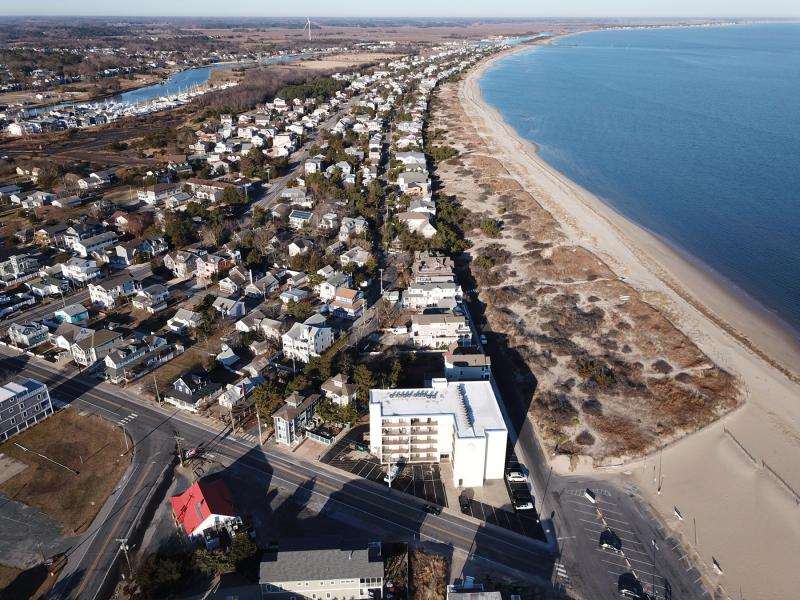The Lewes Executive Committee on Resiliency unanimously voted April 12 to recommend the city establish an emergency relief policy that addresses funding for storm recovery.
The committee has been working for several months gathering information from environmental experts, and learning how towns and cities throughout the country handle issues related to climate change and sea-level rise.
The goal is to collect funds over a minimum of 25 years for the purpose of funding future projects and improvements that will help the city become more resilient to climate impacts. The committee’s preference is the city collect a minimum of $500,000 per year, and any expenditure be carefully considered so as not to deplete the fund.
Intended projects include green infrastructure, open space acquisition, individual or bulk property buyouts and vulnerability assessments. Beach replenishment is not one of the intended uses of the funds.
The committee recommends requiring a supermajority four-fifths vote to access the funds.
To reach its fundraising goals, the committee recommends revenue come from multiple sources. Those could include a flat fee per residential property and a fee based on square footage of impervious surface for nonresidential lots. Other potential sources include an accommodations fee on rentals and lodging, property tax allocation or increase, building permit fee increase, developer impact fee increase, parking fee increase or seed money from the city.
Thanks to a grant, the Delaware Department of Natural Resources and Environmental Control’s Resilient Community Partnership in collaboration with the University of Delaware’s Institute for Public Administration worked with the Lewes committee to develop plans and preparation activities to address the challenges anticipated as a result of sea-level rise and climate change.
In addition to a resiliency fund, the committee also recommended mayor and city council require a real estate disclosure for all properties in the city. The disclosure, to be drafted by the city solicitor, would require sellers to report if any claims have been made for flooding. It would also require sellers to provide an elevation certificate if the property is located within the floodplain.
To ensure buyers are educated about potential risks, the disclosure would require a summary of the city’s regulations on substantial damage and substantial improvement, and language to direct buyers to websites for more information about sea-level rise and climate impacts.
Lewes Mayor Ted Becker said both issues may go before mayor and city council as early as May, but no later than June. He expects considerable discussion and a public hearing.
Nick Roth is the news editor. He has been with the Cape Gazette since 2012, previously covering town beats in Milton and Lewes. In addition to serving on the editorial board and handling page layout, Nick is responsible for the weekly Delaware History in Photographs feature and enjoys writing stories about the Cape Region’s history. Prior to the Cape Gazette, Nick worked for the Delmarva Media Group, including the Delaware Wave, Delaware Coast Press and Salisbury Daily Times. He also contributed to The News Journal. Originally from Boyertown, Pa., Nick attended Shippensburg University in central Pennsylvania, graduating in 2007 with a bachelor’s degree in journalism. He’s won several MDDC awards during his career for both writing and photography. In his free time, he enjoys golfing, going to the beach with his family and cheering for Philadelphia sports teams.






















































